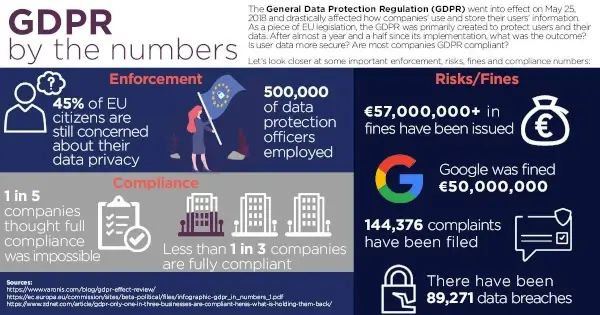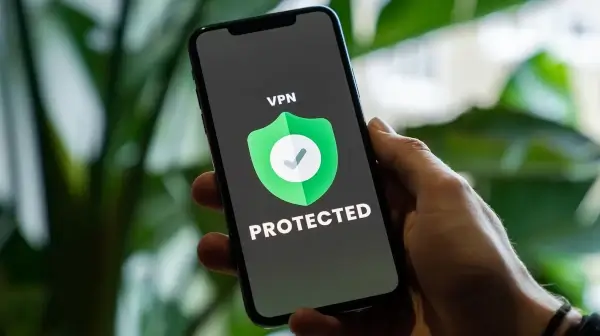
So, you have launched a website intending to reach a worldwide audience? If you're running a business, this could be the first step to growing your brand. But is your website ready to go global? After all, just because your website works for a user in the United States doesn't mean it will be accessible to a user in Japan.
For one, not everyone speaks the same language. Does your website offer translation for users visiting from different global locations? Not only that, but does your website meet the preferences of various users? People will respond differently to design choices based on their culture.
Of course, you need to conduct some testing to find out if your website works globally. This is where geolocation comes in. But what exactly is Geolocation testing, and how can it help you?
What Is Geolocation?
Today, the use of technology in the business world is widespread and includes a vast array of technology for different functions. This ranges from a partner relationship management system to geolocation technology. In fact, you likely use devices enabled with geolocation technology every day.
Think about the last time you opened an app on your phone. You probably got a notification like this "This app wants to know your location." There are many good reasons why a newly launched start-up or an established business might want to use geolocation.
The most obvious example is food delivery apps. With your location, an app can show you all the options for delivery in your area. With geolocation, a user doesn't even need to input their details. As their device moves, their location will update. It's a handy tool providing us with constant access to amenities based on our location.
But geolocation has more uses than food delivery. You'll find it in fitness apps, helping to track your activity. Or it could power your GPS and help you get to the correct location. The fact is most mobile apps use geolocation in some way.

If you're reading this article, you're probably looking to use geolocation on your website. As reflected above, the technology can be used to adapt your website for users around the world. Below are a few use cases for geolocation on your website:
- Translating text to the native language of a user
- Suggesting relevant product
- Offering appropriate content
But to cash in on these benefits, you first need to conduct geolocation testing.
Why Do You Need Geolocation Testing?
There are lots of reasons why geolocation testing is essential. Here are just some of the reasons why testing is so important.
Does your website work in different markets?
This might seem like an obvious question, but it's one that many businesses overlook. There is no point in carrying out the best e-commerce marketing strategies in different global locations if your website isn't going to work. It is a more common problem than you might think. Ultimately, you'll want your brand to appear competent worldwide.
For example, a website using jQuery JavaScript might not load in China. This occurs if you load the script using the Google content delivery network - a URL blocked in China. Many businesses have learned this lesson the hard way. But the problem could have been picked up using geolocation testing.
It helps you stay on the right side of the law

Different countries have their own rules for online businesses. Not complying with these rules can have painful consequences. Let's look at one example. You will be aware of Google; they own 91.4% of the search engine market. Unfortunately, this business success does not seem to have translated to common sense.
In 2019, the company was fined a staggering €50 million. This is because it failed to comply with the EU's General Data Protection Regulation (GDPR). Under GDPR, a business needs to gather consent from its users before collecting any data about them. It usually means a cookie banner on your website for visitors from the EU. You can then use your machine learning data pipeline to extract and analyze the data.
This is just one example of how your website must alter its behavior to comply with the law. If you are serious about selling to global markets, you must ensure that your website complies with all markets. This is why geolocation testing is so important.
Of course, your whole team must know about legislation compliance when working on your website. It is a good idea to outline responsibilities when writing employment contracts clearly. You might want to investigate electronic signature options for greater authenticity.
How Do You Perform Geolocation Testing?
As the name suggests, geolocation testing ensures that your website works for users based in different locations. But how do you carry out this form of testing? The following methods should help.

Sign up for a remote monitoring service
There are many third-party remote monitoring services out there capable of trying to access your websites from different locations around the world.
Sign up for such a service, set up the monitoring locations you want your website to be tested from, and the time between the tests. If your website becomes unavailable from any of the setup locations, you will be notified immediately so you can address the issue.
Third-party monitoring is also helpful in case you run online ads. For example, if you get a message that your website is unavailable from Australia, you can stop the ads targeting the Australian market before losing that click money.
Choose the right software
Before you can carry out geolocation testing, you need to find the right software. Having a social media report is crucial to measuring your SM success. Similarly, you will need a way of measuring the results of your geolocation testing.
There are many cloud-based testing options, and it is worth researching to find an option that's right for you. After all, when you're considering purchasing other cloud-based software, such as alternatives to Aircall, you're likely to research your options before forking out your hard-earned cash.
When choosing software, it would be best to look for some of the following features.
- Testing on different browsers and in different locations
- Compatibility with different operating systems
- A secure framework with no third-party servers
You might want to look to industry peers who have already worked with geolocation testing software for advice.
Use a VPN
A Virtual Private Network (or VPN) is a popular tool in the cybersecurity community. A VPN masks the IP address of a user and encrypts web traffic. With the number of cyberattacks on the rise, it is a tool that more and more people are using. A recent study by Security.org found that 41% of adults online were using VPNs.
One of the benefits of a VPN is that it allows you to change your global location. This means that your IP address could show that you are in France, even if you are based in the US. It is a trick that many people use to access content that is not usually available in their region. Is there a Netflix series that you can't access? No problem!

This method can also be used in Geolocation testing. With a VPN, you can conduct website testing from different users' perspectives. All you need to do is change your location and test how your website responds. Is translation kicking in? Do product recommendations change? If not, something has gone wrong.
Be warned, however, that particular third-party applications block VPN usage. If you use one of these apps on your website, your VPN might not work.
Form a global team
Carrying out all your geolocation testing on your own might be attractive. For one, it will be much cheaper; you will not have to splash out finding testers. You might also need to spend money on leadership training in business. But while you might not like the idea of spending too much cash, there are certain areas where spending money is necessary for success. This is one of them.
Think about it, you might be able to check if a page is translating, but can you rate the quality of the translation? The answer is probably' no' unless you're fluent in multiple languages. Similarly, while you might have adapted content for different regions, you can't gauge its effectiveness.
If you build a worldwide team, you can tap into the knowledge and expertise of locals. When creating content for overseas markets, you should also seek writers from foreign markets. After all, they will understand their market far better than you. They can make informed decisions about which topics are likely to be engaging.
But we warned that sharing your site with testers does bring a security risk. You will be providing your team with the source code of your website. In the wrong hands, this could cause trouble. Make sure you create a vetting process before putting together your team. It is a good idea to use web teleconferencing software to ensure everyone is on the same page.
Start Testing Today

Geolocation testing can be something of a headache. It is a long and slow process, and sometimes you'll probably feel frustrated. There are many factors to consider, from user experience to legislation compliance. You will want a website that offers the same functionality, regardless of the visitor's location.
You will probably also need to build a worldwide team filled with local expertise. Remember, communication is vital when working remotely, such as for people who work via virtual call centers across different time zones. If you don't allow time for dialogue, you might create a siloed work environment.
The good news is that the rewards will be worth the effort. Regardless of nationality, people will come to your brand expecting some professionalism. By offering a good experience, you keep users happy and expand into new markets.
Ultimately, it is best not to delay testing. So instead, start your testing now—it's your first step to reaching a new audience.


 Copyright 2000-2026, WebSitePulse. All rights reserved.
Copyright 2000-2026, WebSitePulse. All rights reserved.